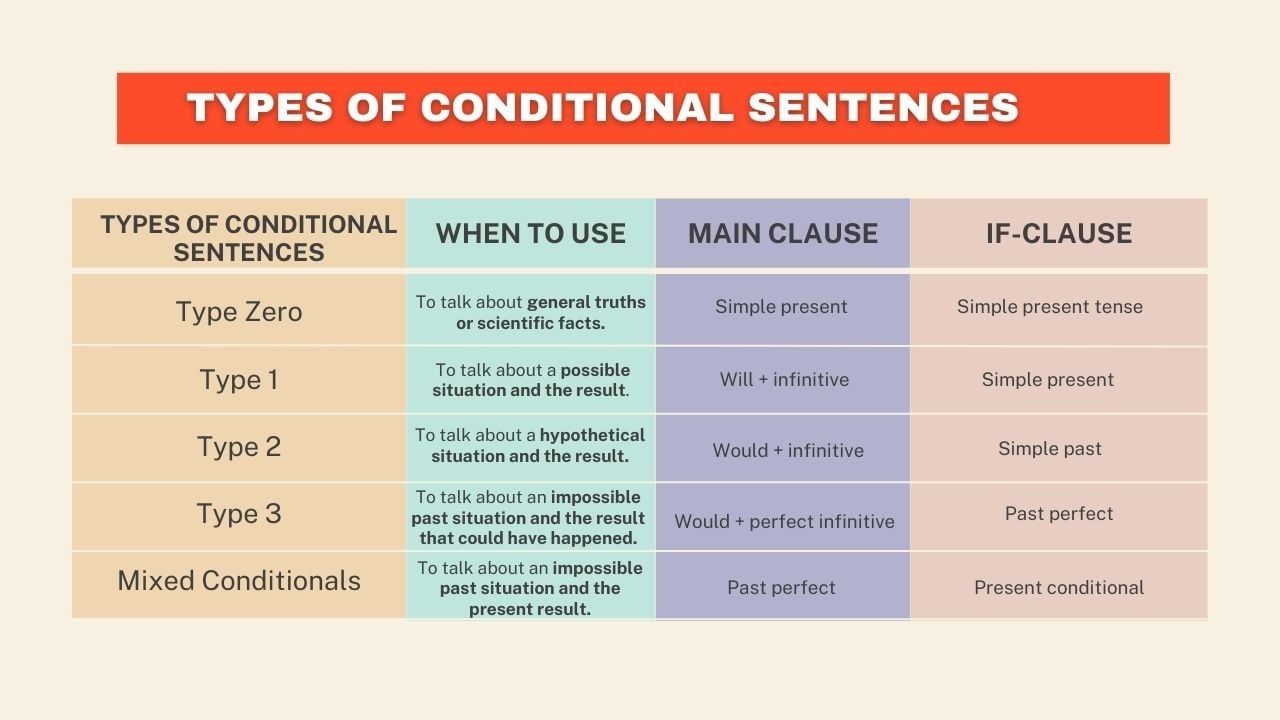Conditional sentences are used in English to express a hypothetical situation and its consequences. There are four main types of conditional sentences, each with its own structure and usage. Understanding these types can help you communicate more effectively in English.
Let’s explore the four types of conditional sentences:
1. Zero Conditional
The zero conditional is used to talk about general truths or facts. It is formed by using the simple present tense in both the if-clause and the main clause. For example, “If you heat water to 100 degrees Celsius, it boils.” This type of conditional is used when the result is always true under certain conditions.
2. First Conditional
The first conditional is used to talk about possible future situations and their probable outcomes. It is formed by using the simple present tense in the if-clause and the future tense (will + base verb) in the main clause. For example, “If it rains tomorrow, I will bring an umbrella.” This type of conditional is used when there is a real possibility of the condition being met.
3. Second Conditional
The second conditional is used to talk about hypothetical or unlikely situations and their possible outcomes. It is formed by using the simple past tense in the if-clause and the conditional tense (would + base verb) in the main clause. For example, “If I won the lottery, I would buy a new house.” This type of conditional is used when the condition is unlikely to be met.
4. Third Conditional
The third conditional is used to talk about unreal situations in the past and their imaginary outcomes. It is formed by using the past perfect tense in the if-clause and the conditional perfect tense (would have + past participle) in the main clause. For example, “If I had studied harder, I would have passed the exam.” This type of conditional is used to talk about regrets or things that could have happened differently in the past.
By understanding the four types of conditional sentences, you can improve your English grammar skills and communicate more effectively in various situations. Practice using these structures in your everyday conversations to become more fluent in English.
Remember that conditional sentences are a useful tool for expressing hypothetical situations and their outcomes. Whether you are talking about general truths, possible futures, unlikely scenarios, or past regrets, using the correct conditional type can help you convey your message clearly.
